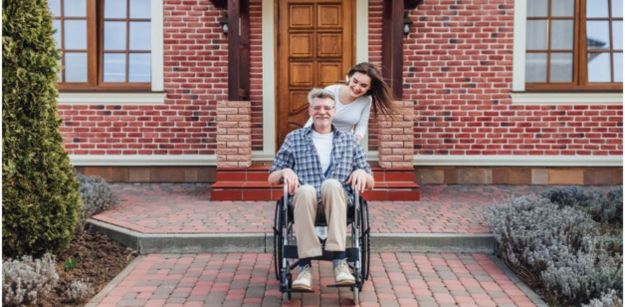For individuals with disabilities, finding a place to call home involves more than just four walls and a roof. It’s about creating a space that supports independence, accommodates unique needs, and fosters a sense of belonging. In this blog post, we’ll embark on a journey to explore various housing options designed to meet the specific requirements of individuals with disabilities, ensuring they find not just a house but a home that enhances their quality of life.


Accessible Housing: Opening Doors to Inclusion
Accessible housing can open doors to independence for individuals living with mobility challenges. Going beyond basic accommodations such as ramps and wide doors, accessible housing includes features such as ramps and wide doors to make daily living more manageable for these individuals. Many architects and builders now adopt universal design practices to create homes that welcome all people, regardless of physical abilities.
Community Living: Building Connections and Support Networks
Community living provides individuals with disabilities the support they need to thrive, including group homes and supported housing that provide a sense of community where residents can share experiences and support each other; with staff available on-site, these settings become more than just places to stay – they become places where friendships flourish, and independence is fostered.
In-Home Support Services: Bringing Help to Your Doorstep
Sometimes, the nicest and most comfortable spot is in your own home. In-home support services bring assistance directly to individuals with disabilities, allowing them to maintain their independence while receiving the care they need. From personal care to household tasks, these services are tailored to individual requirements, promoting a sense of autonomy within familiar surroundings.
Transitional Housing Programs: Navigating Life Changes
Life is full of changes, and transitional housing programs provide much-needed support during these changes. From family living arrangements to independent living or recovery from a hospital stay, these programs provide temporary housing and support services to bridge any significant life transitions. Their purpose is to provide stability in times of change by providing support during such changes.
Accessible Rental Housing: Making Inclusivity Affordable
Finding a rental home that is both accessible and affordable can be a challenge. Collaborations between disability service providers and housing agencies can make a difference. By identifying and promoting accessible rental options, we contribute to breaking down financial barriers, ensuring that everyone, regardless of their abilities, has access to homes that meet their unique needs.
Conclusion
Exploring housing options for individuals with disabilities involves opening doors, celebrating diversity, and creating a sense of community. This goes beyond physical spaces – it means giving everyone an equal chance to find a space that meets their individual needs and improves overall well-being.
As we move into a diverse housing landscape, let us prioritize simplicity, inclusivity and dignity in our approach to housing options. Every person deserves a place where they feel at home. By understanding and advocating for these different housing options, we contribute to an environment in which everyone can find a place they call their own where they can thrive while being supported by communities they appreciate in their journey. Can increase. Each journey.



